The very idea of horseracing once gave Chelsea Fields a bad feeling. The 20-something Gen Y Californian thought there was something unseemly about it, almost creepy. But then it changed.
Through her affiliation with Dr. Ken Lian’s veterinarian practice on the West Coast, she got to know real working Thoroughbred racehorses, and she began to see a whole different world.
The racetrack, teaming with powerful, glistening Thoroughbreds, was a place where legendary horses like Seabiscuit had drawn thousands of fans decades before, and she soon found that the tracks still carried the mystique of those times, and were only waiting for discovery by the youth of today.
In this week’s Clubhouse Q&A, Fields discusses her ongoing work with the Thoroughbred Education Foundation, a volunteer foundation seeking to foster good horsemanship within the industry, while attracting a new generation of to the sport.
Q: Before you started volunteering with the Thoroughbred Education Foundation, you thought of the racing industry as a “boogie monster.”
For my generation, I think a lot of people have the same thought. Kids are afraid of it, and they don’t know why. People, who hear about horses at the track quickly say, “Oh, I don’t like the track.”
They say scary things happen at the track and they don’t treat the horses very nicely.
Q: And you felt the same way before you started working for the Thoroughbred Education Foundation, a nonprofit that seeks to educate a new generation of horse fans?
At one time I thought of the track like “boogie monster.” But, as I worked with Dr. Ken Lian, at his veterinary practice, I started to realize how much racehorses really wanted to run.
Q: While working as a vet tech for Dr. Lian, you were invited to visit Day Creek Farm in California, and watch horses being prepped for races on a training track. What did you learn?
My journey started with a horse named TooSexyForMySaddle. She was a horse who threw a temper tantrum if she couldn’t go out to the track and run. She wanted to go onto the track!
I learned pretty quickly that these horses love to run, and the track can be a great experience for them. Simply put, they are born to run and it is we, humans, who have made it a bad experience for many of the horses.
Q: As you began to groom and take care of racehorses like TooSexyForMySaddle, your instinct to “run the other way” from the racetrack subsided.
As I worked with the horses, just doing chores, I started to see a whole different side to racing. It was incredible to me, for example, to see that the racehorses not only knew their job, they took seemed to relish in it.
There was a half-mile training track at the farm, and whenever the horses were suited up and taken out, I could see a sparkle in their eye: they seemed so proud.
Q: Watching TooSexy workout, and witnessing how alive she became as she approached the training track, helped change your attitude about racing?
I’ve always loved animals, and I always tried to see what they were telling me, by looking in their eyes— I felt I could see what they’re feeling.
TooSexy just lights up and literally prances when she goes to that track. She feels like she’s on top of the world. That’s what she looks like. She loves to show off, and she is very proud of the fact that she’s a Thoroughbred. There’s that real flame.
Q: And yet, as thrilled as you were to watch TooSexy train, and unlike sports such as baseball and football, it is a sport that fails to impress your generation like those more popular sports. What would make Thoroughbred racing more appealing to young people?
Young people want to see a personal connection between the trainers and jockeys and exercise riders, and they want to know that they care. They want to see that personal connection with the horse, and that the sport isn’t just about the gambling.
We’re doing it because it’s the sport and the Thoroughbred. My generation is very much about the personal connection.
Q: You’ve helped author two books about Thoroughbreds and horse racing. Tell me about that.
I did a lot of writing for the book Highgunner and the Generation Y Alliance to help promote the Thoroughbred breed. I also chose a lot of photographs to illustrate the story about the breed.
Our end-goal for the book is to educate a next generation of horse fans. There aren’t a lot of people who don’t think horses are pretty, but, what I want people to see in the book is the concept that there could be an alliance of Generation Y (fans), who could help the industry have a successful future.
Q: And yet, the younger generation of prospective racing fans wants to see changes in the industry.
There is a trifecta legacy that Generation Y faces and inherits that keeps them away from the sport: closed doors, inadequate ‘before care’, and “disposability.” We, as an industry, must be willing to address each of these issues in order to grow our sport.
With regards to “closed doors,” we have heard many stories about people wanting to get involved with the breed or with racing but who are having a very difficult time getting any kind of exposure, let alone experience, with Thoroughbreds.
We have setup an educational program, called Thoroughbred Camp (facebook.com/ThoroughbredCamp), where people of all ages can learn about and connect with the breed.
We hope to appeal to the next generation of enthusiasts, owners and trainers who will expand the core of our sport beyond the gamblers.
Second, the issue of inadequate ‘before care’ needs to be resolved.
Emphasizing better ‘before care’ will not only give us better racehorses, but will make it easier and less expensive to transition a horse to a second career. To mygeneration, it tells us you care for the horses’ welfare before, during, and after their career.
And third, responsibility rather than disposability: Simply put, racing must take a strong stance against horse slaughter. There is no excuse for any of our perfectly healthy horses to be headed toward slaughter plants. This should be an offense to all in the industry and is definitely on the minds of Generation Y.
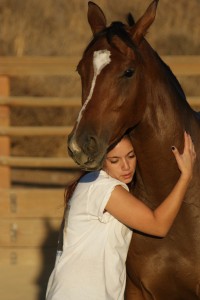
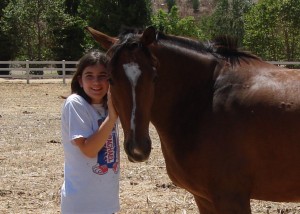
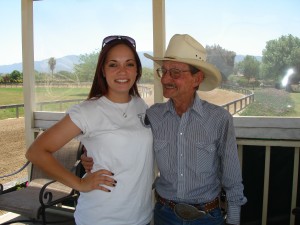
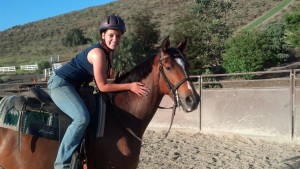

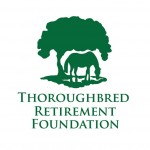
Congratulations! Your attitudes are only going to make life better for our beloved horses on and off the track. Rock on!